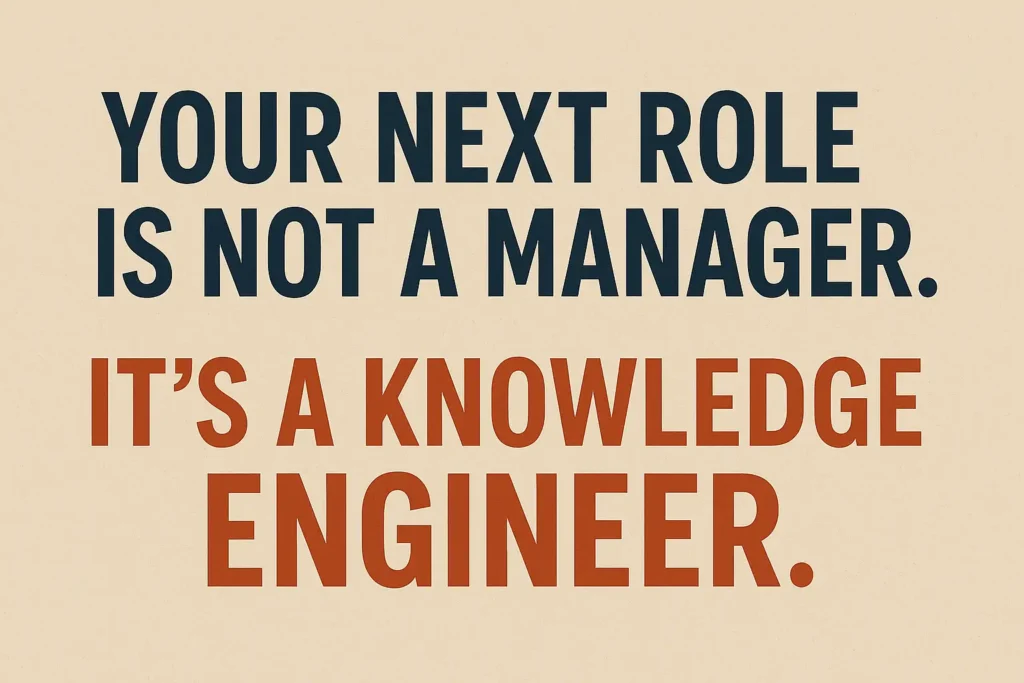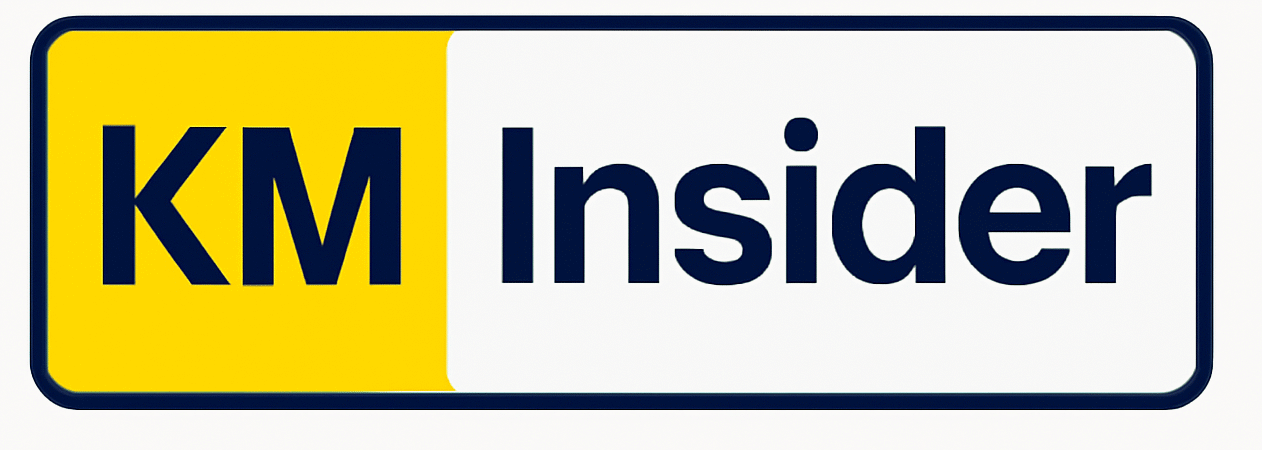For years, the professional path for a Knowledge Manager has followed a predictable trajectory: from specialist to senior specialist, and eventually, into a management role. We’ve seen this as the pinnacle of a KM career, a position of authority and influence. But as intelligent automation reshapes the workplace, this traditional ladder is becoming a trap, leading to roles that are more administrative and less strategic.
The future of our profession lies not in managing people, but in engineering knowledge.
The next great role for a KM professional is that of a Knowledge Engineer. This is not a technical title in the traditional sense, nor is it merely a new name for an old job. It is a fundamental evolution of our core purpose: shifting our focus from organizing information to building systems that create, connect, and amplify organizational wisdom at scale.
This is the path to truly becoming a strategic partner in your organization.

The End of the Old Career Ladder
The tasks that once defined the KM professional’s day-to-day managing documentation, categorizing wikis, and overseeing content migration are rapidly being automated by AI. Generative AI can summarize meeting notes, auto-tag documents, and answer basic questions from a knowledge base with incredible speed and accuracy.
While this may seem like a threat, it is, in fact, a liberation. It frees us from the tactical and administrative burdens that have historically prevented us from engaging in higher-level, strategic work. To simply climb the managerial ladder and oversee these automated processes is to miss the greatest opportunity the profession has ever seen. The true value is not in managing the system, but in architecting it.
Defining the Knowledge Engineer
So, what does a Knowledge Engineer do? This role combines our deep understanding of how humans use and create knowledge with a strategic vision for how technology can support and enhance those processes. The Knowledge Engineer’s work can be defined by three core pillars:
1. The Architect of the Knowledge Ecosystem: The Knowledge Engineer is a system designer. They don’t just add content to a knowledge base; they design the entire ecosystem. This involves creating the metadata schemas, taxonomies, and data pipelines that enable AI to find, connect, and deliver the right information at the right time. Their work ensures that the knowledge flowing through the organization is clean, structured, and ready to be used by both people and machines. They are the architects of the organization’s collective brain.
2. The Human-AI Collaborator: This is where the magic happens. The Knowledge Engineer’s primary function is to build the bridge between human expertise and machine intelligence. They train and fine-tune AI models, not by writing code, but by feeding them high-quality, contextual data. They design the workflows that ensure human-in-the-loop validation, so that the knowledge generated by AI is always accurate, trustworthy, and aligned with organizational values. This role requires empathy and a deep understanding of human behavior to ensure that the tools built are intuitive and genuinely helpful, not just technologically advanced.
3. The Value Multiplier: The Knowledge Engineer’s ultimate goal is to turn knowledge into a competitive advantage. Their success is measured not in the number of documents in a repository, but in tangible business outcomes. Did a new AI tool, powered by their knowledge ecosystem, reduce time-to-market for a new product? Did it accelerate decision-making for leadership? Did it improve employee training and retention? The Knowledge Engineer speaks the language of business strategy and ROI, proving that their work directly impacts the bottom line.
Your Roadmap to Becoming a Knowledge Engineer
This transition requires a shift in mindset and a commitment to new skills. Here’s how you can begin your journey:
- Shift Your Vocabulary: Start thinking and speaking like a designer and architect, not a librarian. Talk about “knowledge pipelines” instead of “content libraries,” and “ecosystems” instead of “repositories.”
- Embrace Data Literacy: You don’t need to be a data scientist, but you must understand the fundamentals. Learn how data is structured, how AI models are trained, and what the capabilities and limitations of these technologies are.
- Pilot Small-Scale Projects: Start with a focused problem. Could you automate the categorization of customer support tickets? Can you build a simple conversational agent to answer employee benefits questions? These small wins will demonstrate the value of your new role and build a case for larger projects.
- Build Your Network: Connect with your data science, IT, and product teams. The Knowledge Engineer’s work is inherently cross-functional. You must be a collaborative bridge between departments.
The rise of AI is not a threat to the knowledge management profession; it is its single greatest opportunity for evolution. Your next role isn’t waiting for you on a traditional career ladder. It is a new, strategic position you can define and lead. It’s time to stop managing knowledge and start engineering it.
Read: The One Skill Every KM Professional Needs to Master in the AI Era
Subscribe to receive notifications for free webinars on Knowledge Management.
